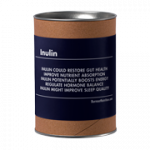Chronic Fatigue Syndrome (CFS) is a complex condition characterized by severe, long-lasting fatigue that significantly impacts daily life. While there is no cure, acupuncture may help manage some CFS symptoms. Here are the key points:
Potential Benefits of Acupuncture for CFS
- Reduces fatigue severity
- Improves sleep quality
- Relieves muscle pain and general pain
- May help with depression, anxiety, and cognitive impairment
Limitations of Current Research
- Small sample sizes in most studies
- Varying acupuncture protocols and outcome measures
- Potential biases and lack of long-term follow-up data
Future Research Needs
- Large-scale, multi-site clinical trials
- Standardized treatment protocols and outcome measures
- Long-term follow-up assessments
- Comparisons with other treatments and combination therapies
- Evaluating different CFS subtypes and patient characteristics
- Understanding biological mechanisms of acupuncture for CFS
- Comprehensive safety assessments
While acupuncture shows promise as a complementary therapy for CFS, larger and more rigorous studies are needed to confirm its effectiveness and safety conclusively.
| Common CFS Symptoms | Potential Benefits of Acupuncture |
|---|---|
| Severe, long-lasting fatigue | Reduced fatigue severity |
| Sleep problems | Improved sleep quality |
| Muscle and joint pain | Pain relief |
| Headaches | May help manage headaches |
| Cognitive impairment | Potential cognitive benefits |
| Depression and anxiety | May improve mental health |
Related video from YouTube
How We Reviewed the Research
Finding and Choosing Studies
To find relevant studies on using acupuncture for chronic fatigue syndrome (CFS), we searched multiple databases, including PubMed, Embase, the Cochrane Library, Web of Science, Wanfang database, China National Knowledge Infrastructure (CNKI), Chinese Biomedicine (CBM) database, and VIP database. The search covered studies up to March 2018 and used keywords related to "acupuncture," "chronic fatigue syndrome," and "randomized controlled trials."
We included randomized controlled trials (RCTs) that compared acupuncture with:
- Sham (fake) acupuncture
- Other treatments that may help CFS
- No treatment
Studies were excluded if they did not meet the eligibility criteria or if the full text was unavailable.
Evaluating Study Quality
We assessed the quality and risk of bias in the included studies using the Cochrane Collaboration’s tool. This tool evaluates areas such as:
- Random sequence generation
- Allocation concealment
- Blinding of participants, personnel, and outcome assessors
- Incomplete outcome data
- Selective reporting
- Other potential sources of bias
We also used the Grading of Recommendations Assessment, Development and Evaluation (GRADE) approach to evaluate the overall quality of evidence for the main outcomes. The GRADE system considers factors like:
- Study design
- Risk of bias
- Inconsistency
- Indirectness
- Imprecision
- Publication bias
It rates the quality of evidence as high, moderate, low, or very low.
sbb-itb-cf04d29
Research Findings
Does Acupuncture Help CFS Symptoms?
The studies show that acupuncture may be more helpful than sham (fake) acupuncture and other treatments like Chinese herbal medicine for managing chronic fatigue syndrome (CFS) symptoms. The combined results suggest acupuncture has a positive effect on overall response rate and reducing fatigue severity compared to control groups.
Acupuncture has been found to be moderately to highly effective in managing these CFS symptoms:
| Symptom | Effectiveness |
|---|---|
| Fatigue | Moderately to highly effective in reducing fatigue severity based on various fatigue scales |
| Sleep disturbances | Moderately effective in improving sleep quality and reducing insomnia |
| Pain | Moderately effective in reducing muscle pain and general pain sensations |
| Depression and anxiety | Some evidence suggests potential benefits in improving mental health and reducing stress |
| Cognitive impairment | Limited evidence indicates potential benefits in enhancing focus and memory |
However, the quality of the reviewed studies was generally low, and the evidence is limited by small sample sizes and potential biases.
Potential Risks and Side Effects
Acupuncture is generally considered safe when performed by a qualified practitioner. The reviewed studies reported minimal or no adverse events associated with acupuncture treatment for CFS. However, some potential risks and side effects may include:
- Mild pain, bruising, or bleeding at the needle insertion sites
- Dizziness or fainting during or after treatment
- Worsening of symptoms in rare cases
Contraindications for acupuncture may include bleeding disorders, pregnancy, and certain medical conditions. It’s important to consult with a licensed acupuncturist and disclose your medical history before starting treatment.
Strengths and Limitations of Current Research
Strengths:
- Use of randomized controlled trials (RCTs), the gold standard for evaluating treatment effectiveness
- Inclusion of sham acupuncture and other control groups for comparison
Limitations:
- Small sample sizes in most studies, limiting statistical power and generalizability
- Potential biases, such as publication bias and selective reporting of outcomes
- Lack of blinding in some studies, introducing potential performance and detection biases
- Differences in acupuncture protocols and outcome measures across studies
- Limited long-term follow-up data on the sustainability of treatment effects
Overall, while the current research suggests potential benefits of acupuncture for CFS, the evidence is limited by methodological weaknesses and the need for larger, well-designed, and rigorously reported RCTs.
Future Research Needs
To build stronger evidence for using acupuncture to treat Chronic Fatigue Syndrome (CFS), future studies should focus on:
1. Large-scale, multi-site clinical trials
Larger sample sizes from multiple locations can provide more reliable results that apply to a wider population. This reduces potential biases and increases the statistical power of the findings.
2. Standardized treatment protocols and outcome measures
Consistent acupuncture techniques, treatment durations, and validated measures specific to CFS symptoms will allow for meaningful comparisons across studies.
3. Long-term follow-up assessments
Most existing research only looks at short-term effects. Longer follow-up periods are needed to evaluate if acupuncture benefits last over time.
4. Comparisons with other treatments and combination therapies
Studies should compare acupuncture to conventional and complementary CFS therapies. The potential benefits of combining acupuncture with other treatments should also be explored.
5. Evaluating different CFS subtypes and patient characteristics
CFS symptoms and underlying causes can vary. Research should examine if acupuncture works differently for different CFS subtypes or patient groups based on factors like symptom severity or illness duration.
6. Understanding how acupuncture works for CFS
Future studies should use techniques like brain imaging and blood tests to investigate the biological mechanisms through which acupuncture may alleviate CFS symptoms.
7. Comprehensive safety assessments
While current research shows minimal side effects, larger studies are needed to thoroughly evaluate the potential risks and contraindications of acupuncture for CFS patients.
| Key Areas for Future Research |
|---|
| Large-scale, multi-site clinical trials |
| Standardized treatment protocols and outcome measures |
| Long-term follow-up assessments |
| Comparisons with other treatments and combination therapies |
| Evaluating different CFS subtypes and patient characteristics |
| Understanding how acupuncture works for CFS |
| Comprehensive safety assessments |
Conclusion
The research shows that acupuncture may help manage some symptoms of Chronic Fatigue Syndrome (CFS). Studies found that acupuncture can:
- Reduce severe fatigue
- Improve sleep quality
- Enhance overall well-being for people with CFS
However, the current evidence has limitations:
- Small study sizes
- Different treatment methods used
- Potential biases
| Potential Benefits of Acupuncture for CFS |
|---|
| Reduced fatigue severity |
| Improved sleep quality |
| Enhanced overall quality of life |
| Limitations of Current Research |
|---|
| Small sample sizes |
| Varying treatment protocols |
| Potential biases |
While acupuncture shows promise as a complementary therapy for CFS, larger and more rigorous clinical trials are needed to confirm its effectiveness and safety conclusively.
It’s crucial to make informed decisions and consult healthcare professionals before trying any treatment, including acupuncture.
As research continues exploring acupuncture for CFS, it’s essential to maintain an open yet critical perspective. Well-designed studies can help us better understand the role of acupuncture in managing this complex condition.
Related posts
- 10 Stress Management Techniques for CFS/ME
- 10 Nutrition Tips to Manage Chronic Fatigue Syndrome
- Antioxidants for CFS/ME: Benefits, Diet Tips
- Homeopathic Remedies for CFS/ME: Treatment Guide






Leave a Reply